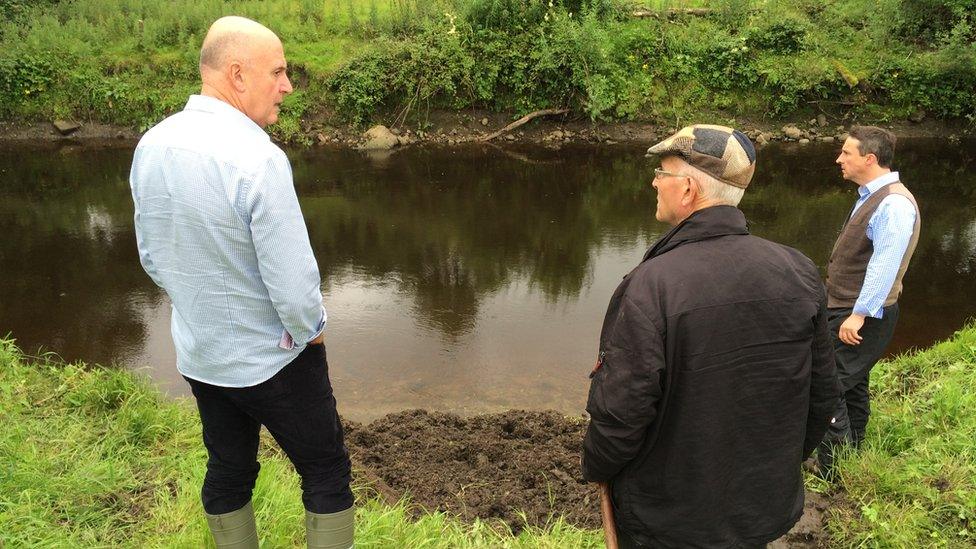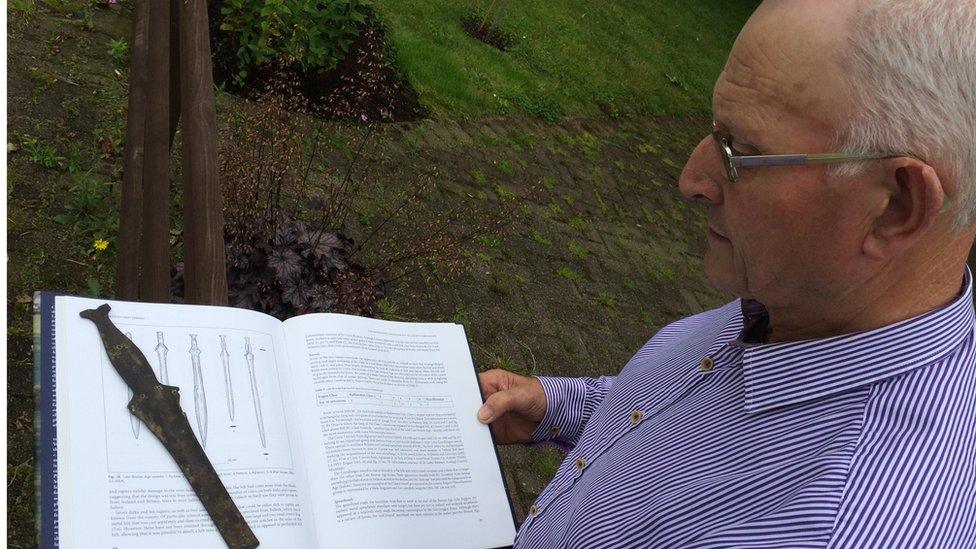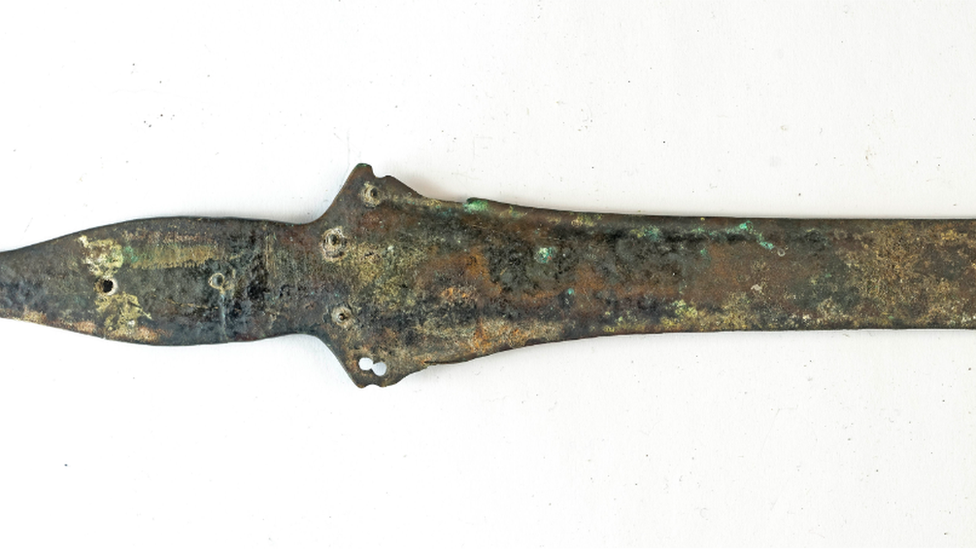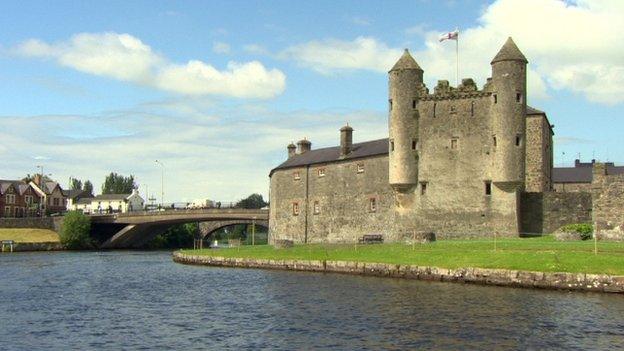Buried Treasure: Sword that lay in farmyard barn for 50 years is rare Bronze Age discovery
- Published

Barney Devine, Maurice Owens and Paul Logue at the place in the River Arney where the sword was found
A community in County Fermanagh which helped to rewrite the history books of a 16th Century battle has made another important discovery.
Cleenish and Killesher community groups solved the disputed location of the Battle of the Ford of the Biscuits at the Arney River in 1594 in a project called Battle, Bricks and Bridges.
They have now unearthed a sword which was found at the ford in the river.
They believed it may have been connected to the battle.
But when they showed it to experts, they were told it was not from the battle, but was a rare Bronze Age artefact dating back to between 800 and 600 BC.
It was found by Ambrose Owens in 1965 when he was fishing beside some old stepping stones and, unaware of its significance, it was left in an old barn at his family farm for more than 50 years.
It was recently rediscovered by his brother, Maurice, who said: "We never thought it to be that important to be honest.
"At the time, somebody told us that it didn't have anything to do with the Battle of the Ford, so therefore it was left to one side and forgotten about."
Maurice found it again when he was cleaning out the barn and the sword was passed on to an archaeologist who had been involved with the battlefield project.

Maurice Owens with the sword his brother found and a history book providing more detailed information
"The word came back that it was 2,600 years old, unbelievable, 2,600 years old!" Maurice said.
Paul Logue, an archaeologist with the Department for Communities, said the discovery was "fantastic".
"This is only the second time I've ever held a real Bronze Age sword and the significance is amazing," he said.
He believes it belonged to a warrior and was deliberately broken before being placed in the river.
"Definitely this didn't belong to your normal lady, your normal bloke, this has come from a high level in society," he said.
"What people were doing, they were giving swords like this over to the other world, to the gods, and they were putting them in rivers, lakes and bogs, but predominantly in rivers.
"So if you're looking for a special place, a sacred place back in the Bronze Age, what you should be looking for is probably somewhere wet and somewhere where they are depositing really rich bronze artefacts and that's what we've got here on the Arney.
"We knew that Arney was a special place but now we can prove that Arney was a special place, a sacred place, going back at least 2,500 years."
Paul Logue said the sword also reveals ancient trade links as it is thought to be of a design that came from the Thames Valley in England, while the bronze alloy could be made of tin from Cornwall and copper from County Cork.
"You've got all those things going on and those metals brought hundreds of miles and made into a sword and here it is deposited in a little river in Fermanagh - that's a great wee story," he said.
The Battle, Bricks and Bridges project has been recognised by a national panel of experts at the British Archaeological Awards in London where it won the best community engagement project.

Ambrose Owens found the sword in 1965 but its significance has only recently been established
Project volunteer Barney Devine said: "We were so engrossed in the archaeology and in the activities from a community point of view, everybody was involved.
"It shows what a rich fabulous interesting place this area is and now with the find of the Bronze Age sword... we're looking forward to possibly getting a further project and having a wider remit and a much older one looking further back into the history of the area."
An event will be organised to show the sword to the local community who will get the opportunity to hold it and learn more about its history before it is given to Enniskillen Castle Museums.
Having discovered its historical value, Maurice Owens said he is pleased that the sword will go on public display.
"I'm delighted that it has been found and I'm pleased to be part of the whole history of the thing," he said.
- Published29 October 2014
